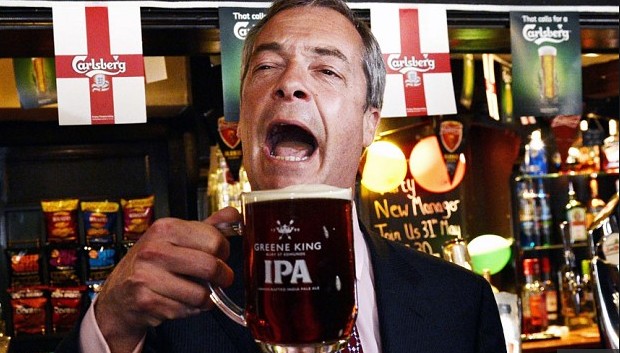Communication lessons from the Euro elections - big is not beautiful for the voter
Nigel Farage says his "dream has become a reality". The UKIP victory in the European elections, following the vote on Thursday May 22 2014 and the count on Sunday May 25 has turned the political landscape for other mainstream parties into a nightmare. There are many reasons why UKIP have been able to, not so much hijack the political agenda but lay seige to it for months and beat it into submission.
